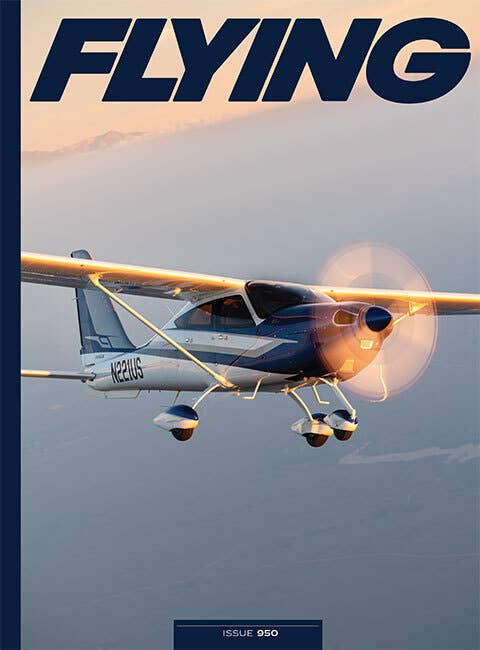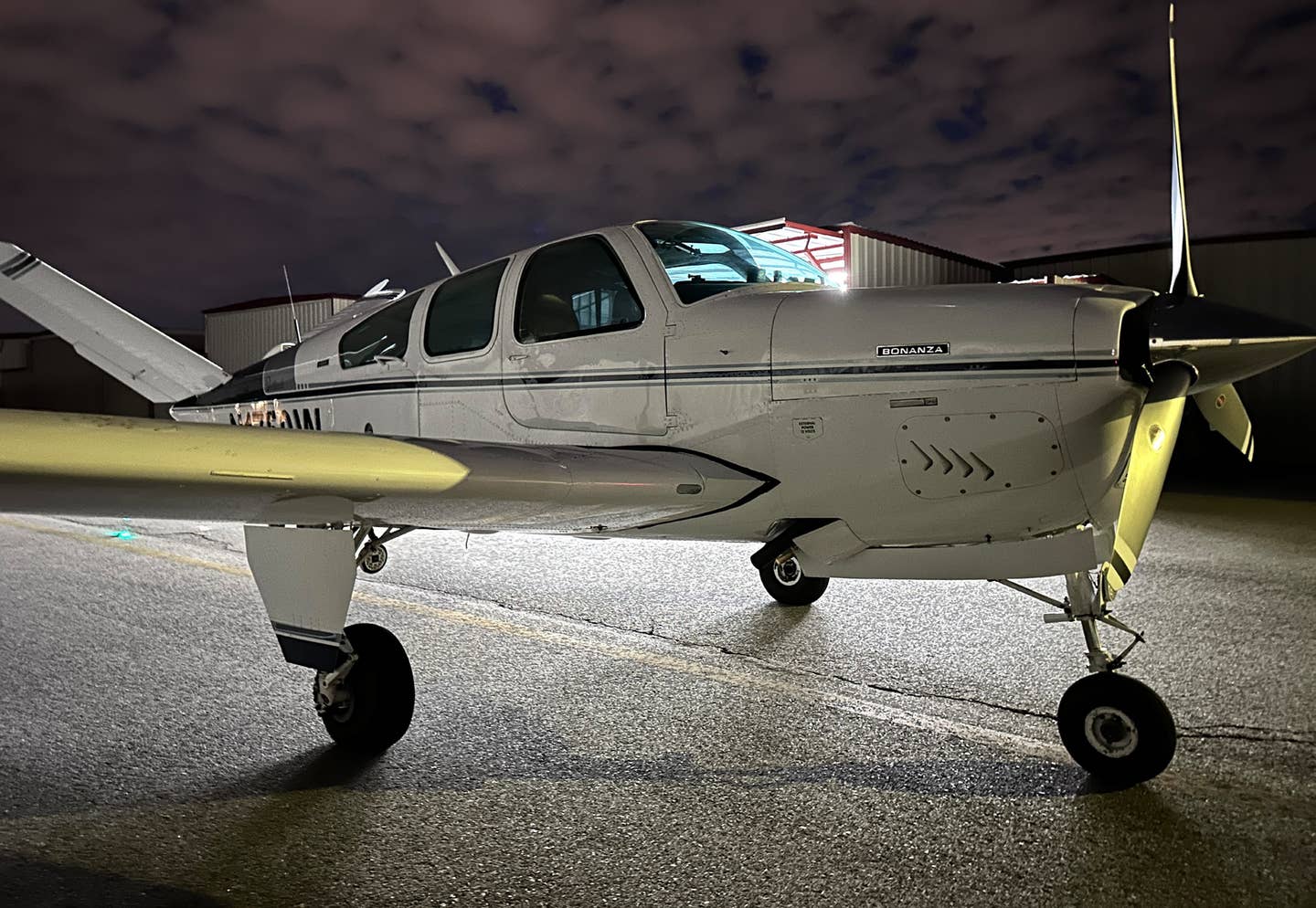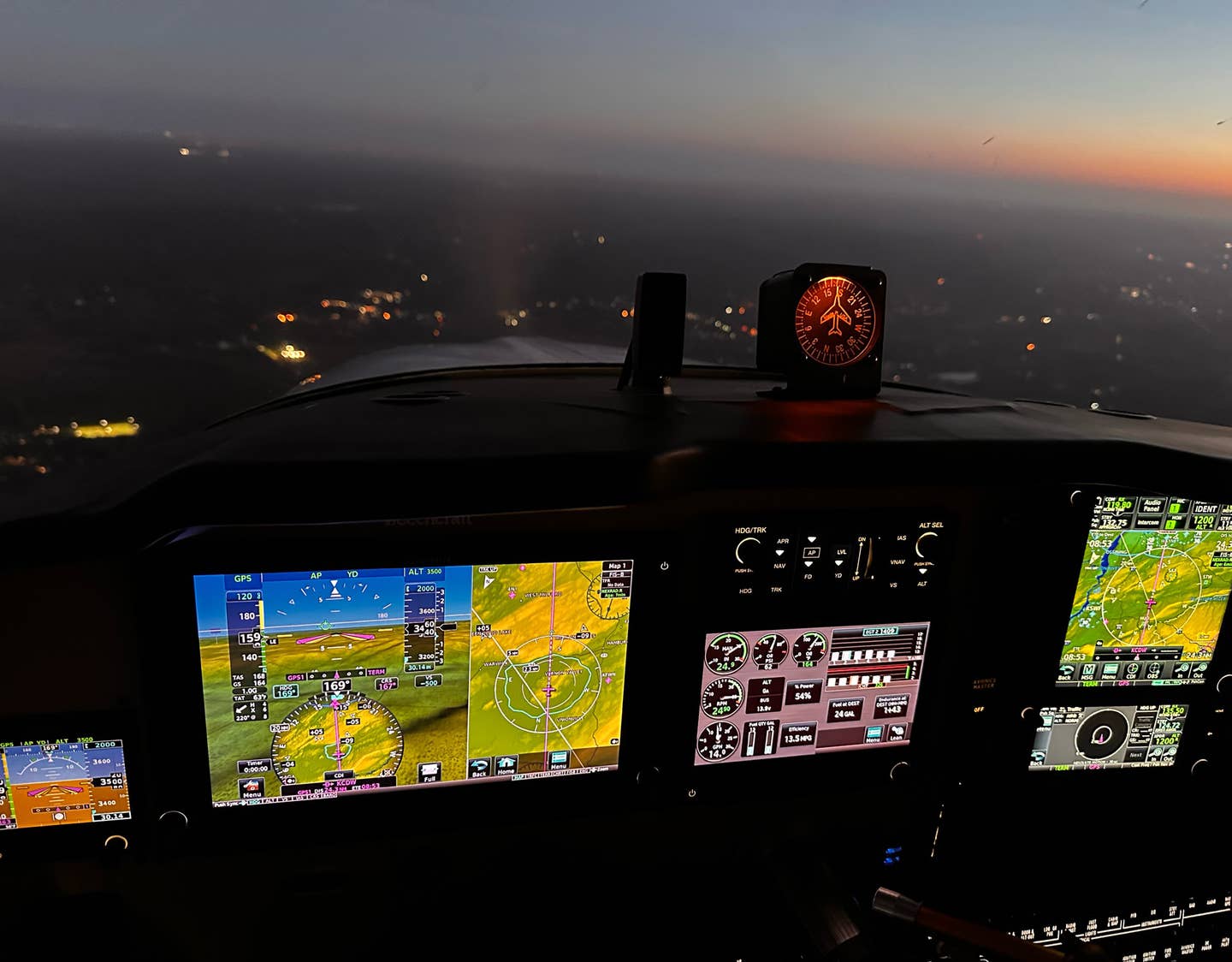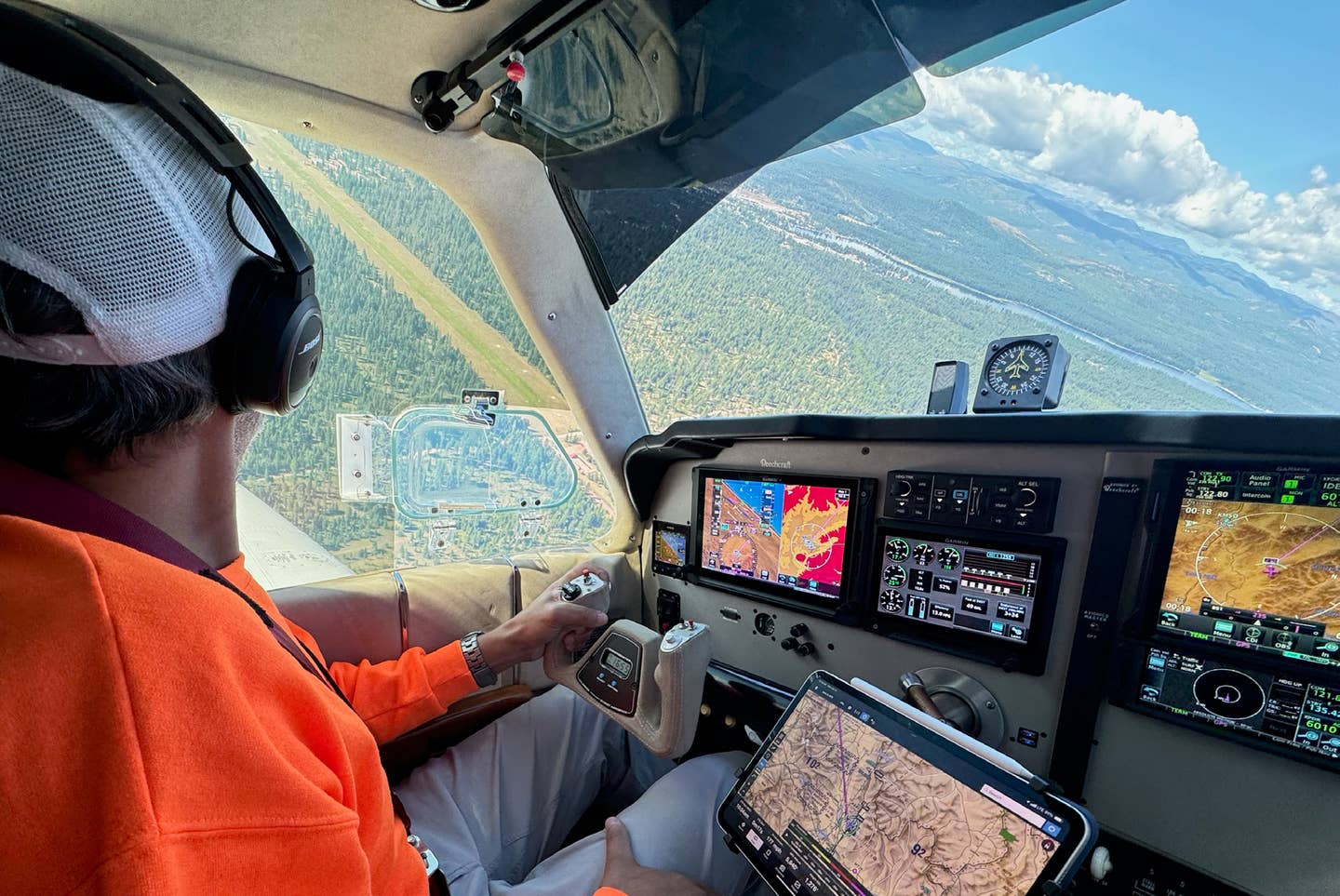The Wisdom of Keeping Transmissions Short and Sweet
In airplanes, as in life, less is more.
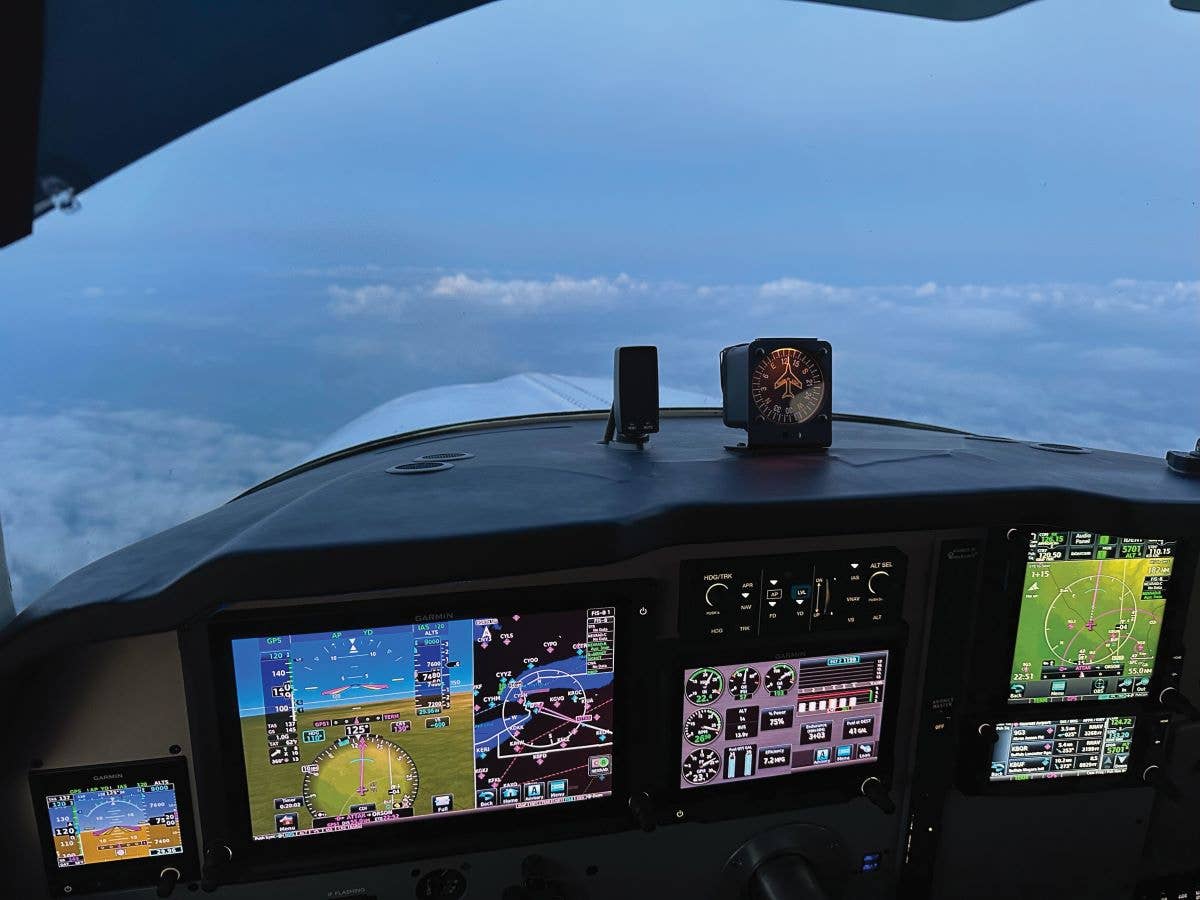
[Courtesy: Ben Younger]
Ever pull over and ask someone for directions only to be met with a minutes-long diatribe whereupon halfway through you realize that the person doesn’t actually know how to get to where you’re going? It’s like they just want to hear themselves talk. Imagine pulling that around 5:30 p.m. on a Friday in Class C airspace. We’ve all heard that student pilot stutter their way through a transmission with enough “umms” to fill a Vinyasa yoga class in Santa Monica.
Succinctness is the single most prized quality a pilot can exhibit when on the radio. It’s almost as if that little push-to-talk button is buried on the backside of the yoke so as to remind you to only use it when necessary. Break glass in case of communication.
If you're not already a subscriber, what are you waiting for? Subscribe today to get the issue as soon as it is released in either Print or Digital formats.
Subscribe NowThis is for a good reason. There are times when multiple pilots are trying to talk to a controller in busy airspace. Without concise communications there will quickly be a backlog of speeding airplanes no longer in their original positions. At some point, this transitions from a nuisance to a danger. And so we are taught to be frugal with our words.
Say who you are, where you’re at, and what you want. Do so using the fewest number of words. Like a chef making a reduction, distilling the information I need to convey to its purest essence is a joyful exercise for me. The sauce just tastes better.
Becoming a writer, and later a pilot, taught me that words are powerful, have distinct meaning, and should be used sparingly. As an added benefit, people will plain like you more when you’re succinct. Certainly air traffic controllers. I remember being at a wedding with my dad when a known yapper in the family took to the podium to make his speech. My father stretched his legs out, slid down in his chair, closed his eyes, and proclaimed, “Nap time.” Even as a 10 year old, I had a conscious thought that I never wanted anyone to have that reaction to me opening my mouth.
Flying south from Sullivan County Airport (KMSV), my home field upstate, toward New York Class B during rush hour, things sometimes get a little unruly—at least on the radios. Combine a collection of airplanes all trying to check in at once with a tired controller toward the end of his shift who possesses a strong New York accent, and I will find myself wishing I had popcorn on board.
New York Approach: “OK, everybody stop talking! JetBlue 2073, heading one-eight-five, climb to one-seven thousand. I got two Pipers calling. The one near Kingston, say request. Everyone else, standby!”
Let me tell you, pilots become wonderfully concise when responding to a stern call like that. Everyone just tightens it up. Short and sweet. Good sauce. Nom. Nom. Nom.
Whenever I’m entering the pattern at KMSV, my instructor, Neil, will come on the radio after I’ve made my initial “10 miles from the field” call. “Hello, Ben. How are you?” KMSV is pretty far from anyone or anything, and there isn’t ever much traffic. Yet it still makes me anxious to talk on the CTAF if it’s anything more than calling out my turn to left base. When I answer him with even the shortest pleasantries, I feel like I’m breaking some rule, or at the least, betraying some code. It just feels wrong. My replies are so short you’d think I disliked the man.
I sometimes take this quest for succinctness too far. Tail numbers should be read back in full when other aircraft in the pattern have similar numbers as yours. My Bonanza is N1750W. When another pilot calls in with a tail number ending in “four-zero-whiskey,” that is not the time to be signing off with my usual, “five-zero-whiskey.” You spell it out in that case. Common sense.
Altimeter readings are a toss-up. When checking in with a new controller, I don’t repeat back the altimeter numbers unless there’s some monstrous difference from the last reporting station that would signify a weather change I’d want to confirm. Short of that, I just give my trusty “five-zero-whiskey.” It means I heard them, and I’m not gonna take up even one extra second of their precious time.
Creativity is not usually rewarded on the radio, but I will admit I love reading back anything with three zeros as “triple nothing.” Sue me. In life outside the cockpit, this desire for brevity has not served me well. Sometimes in conversation I will understand the point someone is trying to make long before completion. It takes everything in me not to stop them midsentence and say, “I got it,” and then summarize in two sentences what they’ve spent the last three minutes (and counting) trying to convey. This is decidedly not a great way to make friends. And apparently I’m not very good at hiding this aversion because even when I manage to keep my mouth shut, people will ask me if I am in pain. On the inside. Yes. I am.
- READ MORE: The Unexpected Perks of an OCD Annual
Screenwriters are like pilots: We have to get the most information across using the least amount of words. While a novelist can use language without any constrictions to paint a vivid physical and emotional landscape, we are beholden to some basic limitations. Screenplays are generally 120 pages, which universally correlates to one minute per page and yields your average two-hour movie. Reminds me of an old-school timing approach from the FAF to the MAP.
There are levels, of course. Some of us are merely good on the radio. Some of us are heroes. I have heard recordings of pilots who have just declared an emergency that sound like they’re on muscle relaxers signing up for a meditation class. I am in awe of these pilots. I’ve only declared an emergency once in my 13 years of flying, and I have zero interest in hearing that tape. I was on my heels, scared, and my little brain added a whole bunch of unnecessary words to every transmission.
I’d like to think my dad would appreciate my radio calls—emergencies notwithstanding. He passed long ago. But if he’s up there listening, I hope he gets to hear me read back a revised IFR clearance departing New York airspace with clarity and an economy of words. That or a really good wedding speech.

Sign-up for newsletters & special offers!
Get the latest FLYING stories & special offers delivered directly to your inbox

